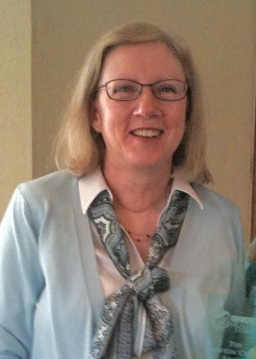When the COVID-19 shutdown began, Barbara White knew that her staff at the Young Parents Project was about to lose one of its most powerful tools.
White is the director of YPP, which assists pregnant teens, young mothers and their children involved in the juvenile justice system in Miami-Dade, Broward, Leon and Gadsden Counties. YPP is part of Florida State University’s Center for Prevention and Early Intervention and is funded by the state’s Department of Juvenile Justice.
Among a host of vital services, the program helps provide access to prenatal and medical care, childcare, education, computers, Wi-Fi and basics like food and diapers. To determine the needs and the well–being of pregnant teens, babies and young moms, YPP staff have traditionally relied heavily on face-to-face visits.
The COVID-19 lockdown changed that — immediately.
Like countless other social service agencies, the program’s practices have been upended. For White and her staff, that meant a total shift made in short order.

“On that Friday, we learned we couldn’t meet in person anymore — by Monday we’d found a whole new way of thinking to keep things going,” White said. “We are a relationship-based program. We are used to outreach, to talking with families, so this has been harder because we can’t get out there and do that work.”
Being in-person allows YPP staff to observe an environment in its totality, to use their experience and intuition and identify potential issues those they serve might be reluctant to talk about.
Mimi Graham, director of the Center for Prevention and Early Intervention, said it’s tough to overestimate the value of the in-home visit to YPP staff, especially in an environment where people are forced to be in their homes and crimes like abuse and family violence have increased.
“A lot of what they see is domestic violence and a lot of domestic violence is about isolation, lack of empowerment, lack of control. So for our visitors to have eyes on families is important,” she said. “We’re doing virtual visits, staying in touch with them that way. You see them. Make sure they look ok, that the baby is ok.”
Graham added that COVID-19 has shined a light on the need for YPP’s services.
“Imagine being 15 years old in the middle of COVID-19 and you’re pregnant,” she said. “Imagine worrying about having a baby in these circumstances.”
White said that, in addition to video conferencing and text outreach, her staff has been embracing all manner of social media for outreach, including TikTok videos.
“One of our workers sent a video clip, saying we miss you, trying to get them re-engaged,” she said, before adding that no media is beyond consideration. “We are trying to be as creative, innovative and thoughtful as we can in reaching out to our adolescent moms.”
For YPP staff, the absence of in-person meetings —and the skills they bring to them— has been difficult, but White said she has noticed an upside.
“We’re dealing with girls and young women and their whole world is texting and FaceTime,” she said. “We are finding that some of them are more receptive to this than to in-home visitors.”
Graham and White said that so much of what YPP provides is reassurance and reinforcement. Educational materials and strategies help empower positive decision–making while steady encouragement reminds the girls, teens and young women the program serves that someone cares.
“In turn, they learn to care for their babies and make better life choices,” White said.
With that in mind, Graham said she’s pleased with how the program has responded because of White, her team and, above all, the teens and young moms they’re trying to support.
“It’s truly amazing what these girls can do,” she said. “We see it all the time. They didn’t make it this far without some grit.”
For more information on the Young Parents Project, visit https://csw.fsu.edu/field-placement/fsu-young-parents-project.




